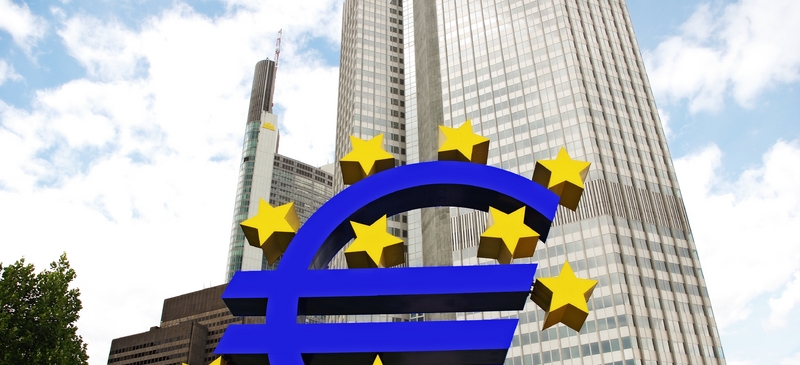
Merkel's euro shackles
Chancellor Angela Merkel’s apparent inability or unwillingness to take bold steps could sink the euro. Yet is it even realistic to expect her to overcome growing opposition from within her own coalition government, a hostile public mood and the red lines drawn by a powerful constitutional court? Merkel cannot single-handedly sort out the euro-mess. But she can, and must, make the transition from a German chancellor to a European leader.
A sigh of relief went through European capitals and trading rooms when on September 7th the German constitutional court decreed that Berlin’s participation in euro rescue missions was legal. The court did, however, set some limits and conditions. No German government will be allowed to create an open-ended transfer mechanism or liability (such as would be implicit in eurobonds). And the German parliament will have to approve not only the establishment of new bail-out mechanisms but also individual interventions. Given the edgy atmosphere that prevails in Berlin, many commentators warn that the need for case-by-case approvals could frustrate future bail-outs.
While market analysts and media commentators are calling for eurobonds or a fiscal union, Merkel is not even sure how to push months-old reforms of the European Financial Stability Facility (EFSF) through parliament. Most likely, she will receive backing from her own CDU/CSU party and her liberal coalition partners in the crucial September 29th vote. A majority vote, however, will not necessarily settle the restive mood in her government. The liberal FDP – polling consistently below the 5 per cent needed to re-enter parliament – is grasping for a survival strategy. Traditionally pro-European and reliable, some liberals are now hoping to capitalise on a growing eurosceptic mood that is otherwise caught only by the far-left Linke party. FDP rebels are trying to get an anti-bail out motion accepted by the party base. This could force FDP parliamentarians to vote against the establishment of the EFSF’s permanent successor in December.
The CSU, the Bavarian sister party of Merkel’s CDU, has always been dubious about too much EU integration, so its rumblings about expelling profligate countries from the eurozone are no surprise. Much more worrying are dissenting noises from within the CDU – the political home of European visionaries from Konrad Adenauer to Helmut Kohl. Open criticism is no longer confined to well-known trouble-makers such as Peter Gauweiler (author of several court cases against government policy). Even hitherto loyal and respected party grandees like Wolfgang Bosbach now promise to vote against further euro bail-out measures.
Nevertheless, the number of dissidents in Merkel’s party is still small, while most CDU members remain pro-European. More important, no-one in the coalition has an interest in a government break-up – which would follow an open revolt against Merkel’s euro policies. Although the CDU/CSU is still leading in opinion polls, the centre-left SPD and the Greens together could expect to gain a majority in an early election – and that despite both parties backing the idea of eurobonds.
The puzzling popularity of the pro-European opposition is indicative of the Germans’ confusion about the euro crisis. Polls show that three-quarters of Germans do not want to give more money to the EFSF, and a solid majority is against eurobonds. At the same time, almost two-thirds support more European integration and three-quarters blame financial markets rather than politicians for the euro crisis. This is a public mood that looks malleable. What is more, Merkel’s attempts to follow rather than shape public opinion have not worked out for her. Neither her dithering over the euro, nor the U-turn on nuclear power, nor the hands-off approach to Libya have halted a string of regional election defeats.
Many Germans crave stronger leadership. They re-elected Gerhard Schröder, nicknamed the basta-chancellor for his table-thumping habits. They admired former Minister Karl-Theodor zu Guttenberg exactly because he often acted out of conviction and against the public mood. They may well reward Angela Merkel at the next ballot if she shows more courage and conviction.
In any case, Germany’s usually crowded electoral calendar will now give the government an 18-month reprieve before the next batch of regional contests and the general election in 2013. It will be hard for Angela Merkel to navigate an anxious and fractious domestic political scene while at the same time taking the drastic steps that are now needed to hold the eurozone together. If she manages, she might be remembered as the lady who saved the euro. If the euro splinters under her watch, her political career and legacy will be destroyed.
